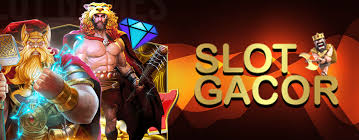The Evolution of Casinos: From Ancient Games to Modern Entertainment
Casinos have long fascinated people with their slot gacor promise of fortune and thrill. From their ancient origins to their current status as entertainment hubs, casinos have undergone a dramatic transformation. Let’s explore the journey of casinos from their early beginnings to the present day.
Origins of Gambling: Ancient Roots
The concept of gambling dates back to ancient civilizations. Evidence suggests that gambling activities existed in China as early as 2300 BCE, with rudimentary dice games and betting on outcomes of various games. The ancient Greeks and Romans also engaged in gambling, with the Romans developing complex betting systems and games involving dice, cards, and even rudimentary forms of roulette.
The Birth of the Modern Casino
The term “casino” itself has Italian roots. In the 17th century, the word “casino” was used to describe small houses or villas where people gathered for social events, including gambling. However, the modern casino, as we understand it today, began to take shape in Venice, Italy, during the 17th century. The Casino di Venezia, established in 1638, is considered the world’s oldest casino, setting the stage for future gambling establishments.
The Rise of Casinos in Europe
As gambling gained popularity, casinos began to spread across Europe. In the 19th century, Monte Carlo in Monaco became a significant gambling destination, thanks to the construction of the Monte Carlo Casino. The establishment of this casino helped transform Monaco into a glamorous hotspot for the wealthy and famous.
During this period, casinos also began to appear in other European cities, such as Paris and London. The allure of these establishments grew, with casinos offering a variety of games and luxurious amenities to attract high rollers and tourists alike.
The Emergence of American Casinos
The casino industry made its way to the United States in the 19th century. Early casinos were often located in the Western frontier, catering to miners and settlers looking for entertainment. However, it wasn’t until the early 20th century that casinos began to gain widespread popularity in the U.S.
The turning point came with the legalization of gambling in Nevada in 1931. Las Vegas quickly emerged as the epicenter of the American casino industry, with the iconic Las Vegas Strip becoming synonymous with extravagant casinos and entertainment. The development of grand hotels and themed casinos helped Las Vegas cement its reputation as the gambling capital of the world.
The Digital Revolution: Online Casinos
The late 20th and early 21st centuries brought about a new era for casinos with the advent of online gambling. The first online casino, InterCasino, launched in 1996, marked the beginning of a digital revolution in the gambling industry. Online casinos allowed players to enjoy their favorite games from the comfort of their homes, leading to a significant shift in how people experienced gambling.
The rise of online casinos also introduced innovative game formats and features, including live dealer games and mobile gambling apps. This digital transformation has made gambling more accessible and has expanded the industry’s reach to a global audience.
The Future of Casinos
As technology continues to evolve, so too will the casino industry. Virtual reality (VR) and augmented reality (AR) technologies are beginning to make their mark, offering immersive gambling experiences that blend the physical and digital worlds. Cryptocurrencies and blockchain technology are also gaining traction, providing new ways to facilitate secure and transparent transactions.
Moreover, casinos are increasingly focusing on responsible gambling initiatives, using technology to promote safer gambling practices and minimize the risks associated with gambling addiction.
Conclusion
From ancient dice games to the digital age of online casinos, the evolution of casinos is a testament to humanity’s enduring fascination with games of chance and fortune. As the industry continues to innovate and adapt, it will undoubtedly remain a prominent feature of global entertainment, reflecting both our love for excitement and our pursuit of the extraordinary.

